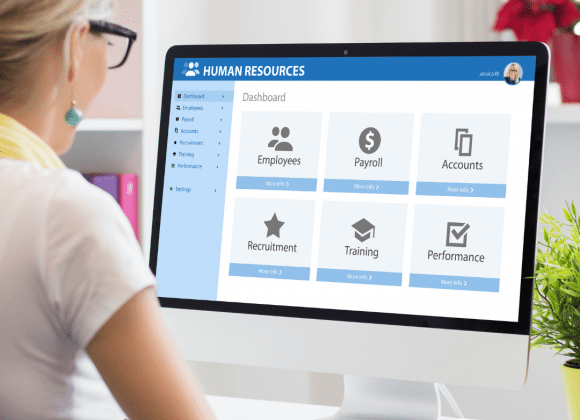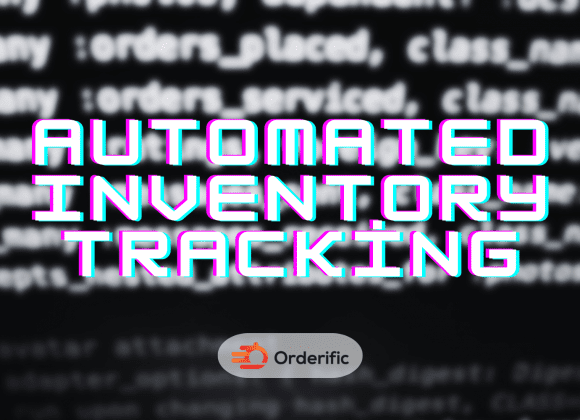Introduction
In event management, selecting the right software types can be a game-changer. Choosing between specialized and all-in-one platforms often leaves event organizers with a problem. Technical platforms cater to specific needs like event registration or attendee engagement, but an all-in-one event management platform offers a comprehensive solution for planning and executing events. Whether you’re an event planner seeking a single tool for managing hybrid events or a management team needing an effective method for attendee engagement, your selection of software will significantly influence the success of your event. Understanding both options’ strengths and weaknesses will help make an informed decision, ensuring an optimal event experience for all attendees.
All-In-One Collaboration Solutions Vs. Specialized Solutions
An all-in-one event management platform is a powerhouse solution, encompassing everything an event organizer could need, from event registration to attendee engagement. It is a comprehensive, one-stop solution that can manage every aspect of your event planning process. This type of event management software simplifies managing multiple tasks, reducing the need for numerous specialized tools. An all-in-one platform can seamlessly handle hybrid and virtual events, helping maintain attendee engagement regardless of the event format.
On the other hand, specialized event management software caters to specific event needs. For example, some platforms focus solely on event registration, while others emphasize attendee engagement. These platforms often provide more in-depth features for their focus area than an all-in-one solution. Event planners may prefer a specialized tool to tackle particular aspects of their event planning.
So, the choice between an all-in-one event management platform and specialized event software depends on the event organizers’ specific needs. If you’re managing hybrid or large-scale events requiring comprehensive management, an all-in-one solution might be best. However, if your primary concern is attendee engagement or event registration, you might find a specialized tool more useful.
In conclusion, all-in-one and specialized solutions offer unique event management advantages. It’s imperative for event organizers to thoroughly understand their needs before selecting their event management software. Understanding your event’s needs can lead to a more successful event, more satisfied attendees, and less stress for the event planner.
Four Reasons Why You Should Consider An All-In-One Solution
#1. Bang For Your Buck
An all-in-one event management platform offers value for money, especially when managing hybrid events. It eliminates the need for various specialized tools, thus saving costs and simplifying the event planning process. For instance, an event organizer can leverage comprehensive event management software instead of investing in separate event registration software, attendee engagement tools, and event marketing systems. It consolidates all these functionalities under one umbrella, making it an economical choice for event planners. This not only streamlines the management of the event but also enhances the event experience for attendees, leading to higher satisfaction levels.
Furthermore, it provides a cohesive event technology solution, which is crucial in today’s digital age. Whether a virtual event on Zoom, Webex, or an in-person gathering, the all-in-one event management platform can handle it all. Venue management also becomes a breeze, with built-in capabilities to manage physical and virtual venues.
#2. It’s Easier To Upgrade And Scale
Another compelling reason to choose an all-in-one event management platform is its scalability and ease of upgrade. As your event grows in size and complexity, the platform can easily adapt to accommodate your expanding needs. It’s intrinsically designed to handle a surge in attendee numbers, additional engagement features, or complex event registration processes. Furthermore, upgrading the platform is straightforward. There’s no need to worry about integration issues between multiple specialized tools or compatibility problems with different software versions. Everything is under one roof, making maintenance and upgrades seamless. This ability to scale and upgrade with ease provides event organizers with an adaptable tool, ensuring they can meet the demands of their event, no matter the size or scope. Ultimately, this flexibility contributes to a smoother, less stressful event planning process and a more enjoyable experience for attendees.
#3. It’s An Integrated Solution
An all-in-one event management platform serves as an integrated solution, offering a cohesive user experience that’s free from the chaos of managing multiple standalone systems. This platform unifies all aspects of event management, from registration to attendee engagement, all within a single interface. It creates an interconnected ecosystem where data flows seamlessly between different functionalities, providing event organizers with holistic, real-time insights into their event’s performance. This integration eliminates the need for constant toggling between different specialized software, saving time, reducing potential errors, and ensuring a smoother planning process. Moreover, it streamlines communication across teams, fostering better collaboration and efficiency. With an all-in-one solution, event organizers gain full control over all aspects of their event, enhancing their ability to execute successful, engaging events.
#4. It’s Better In The Long-Term
Opting for an all-in-one event management platform is a strategic decision that yields significant long-term benefits. In contrast to juggling separate specialized tools, a comprehensive platform evolves with the needs and growth of your events. It offers substantial cost savings and reduces the complexity of managing multiple platforms, making it a financially wise choice for the long haul. This powerhouse platform is designed for future-readiness, scaling and upgrading effortlessly to meet the increasing demands of your events. By unifying all event management aspects, it presents a streamlined, integrated solution that fosters seamless user experience and enhanced team collaboration. Moreover, it provides event organizers with full control, offering holistic insights into event performance from a single interface. Ultimately, an all-in-one event management platform ensures longevity, adaptability, and success in your event management endeavors.
Four Reasons Why You Should Consider A Specialized Solution

#1. You Have A Niche Requirement
Specialized event management platforms shine when you have niche requirements that a general all-in-one solution might not fully cater to. For instance, if your event heavily relies on attendee engagement, a specialized platform dedicated to this aspect can offer in-depth features, from interactive polls to live Q&A sessions. This could significantly enhance the experience for your attendees, fostering higher engagement rates and ultimately, a more successful event. Similarly, if your event has a complex registration process, a specialized event registration software can provide robust solutions to streamline this process, ensuring a smooth and efficient attendee registration experience. Therefore, if you have specific needs that demand focused attention, a specialized event management software can be an excellent choice. It offers a tailored approach, often delivering a more detailed and enriched solution in its specific area of focus.
#2. It’s Cheaper To Implement (Sometimes)
In some cases, implementing a specialized event management software can be more cost-effective than an all-in-one solution. This is especially true if your event has a very specific need, like attendee engagement or event registration, and you don’t require the full suite of features that an all-in-one platform offers. By only paying for the functionalities you need, you can keep your costs down. Additionally, since specialized platforms often have a narrow focus, they tend to be more straightforward and quicker to implement. This not only saves money in terms of software costs but also reduces the time and resources needed for platform adoption, training, and onboarding. However, it’s essential to consider the long-term implications of this choice – while cheaper upfront, the cost may increase if you later require more features or need to integrate with other systems.
#3. It’s Faster To Roll Out
Specialized event management platforms are renowned for their fast rollout time. Given their specific focus, these platforms involve less complexity in their setup and configuration compared to all-in-one solutions. The absence of unnecessary modules and features makes the learning curve relatively straightforward, enabling your team to get up to speed quickly. Furthermore, the implementation process is often faster, as it involves setting up only the required functionalities. This accelerated rollout allows you to start leveraging the software sooner, which can be particularly beneficial if you’re under tight event timelines. The quick deployment of a specialized platform thus translates to immediate efficiency gains, enabling you to focus on creating a compelling and engaging event experience for your attendees.
#4. Lower Barriers To Acceptance
Specialized event management platforms often face fewer obstacles to user acceptance than comprehensive, all-in-one solutions. These platforms, by focusing on a specific aspect of event management such as attendee engagement or event registration, tend to have more intuitive interfaces and simpler workflows. This simplicity makes them user-friendly and reduces the learning curve for new users, accelerating the adoption process. Users can quickly master the functionalities they need without being overwhelmed by a multitude of features that are irrelevant to their tasks. This enhances user satisfaction and increases the likelihood of the platform being embraced by the entire team. Therefore, if you have a team that values simplicity and ease of use, a specialized event management platform could be the preferable choice.
Conclusion
The journey towards the perfect event management platform is a nuanced one, influenced by the unique needs and scale of your events. Both all-in-one and specialized solutions offer distinct advantages that can enhance the event experience for attendees while streamlining the event planning process. As an event organizer, your choice between these two hinges upon your specific needs- whether you’re seeking a comprehensive, robust solution to handle every aspect of your event or a specialized tool that hones in on particular areas such as attendee engagement or event registration. Whatever your requirements may be, the key to a successful event lies in understanding these needs and aligning them with the appropriate software solution. In doing so, you can ensure a seamless event management process, leading to successful, engaging events that leave a lasting impact on attendees. Uncertain about which platform suits you the best? Don’t worry, we’re here to guide you. Schedule a demo with Orderific to get a hands-on experience of how our software can revolutionize your event management process. Book a demo now!
FAQs
What are the different types of software used in event management, and how do they differ?
Event management software types include all-in-one platforms for comprehensive management and specialized solutions for specific tasks like attendee engagement or event registration.
How can event organizers choose the right software types for their specific needs and goals?
Event organizers should identify their specific needs and goals, then compare features of different software to find the best fit.
Are there integrated software solutions that cover multiple aspects of event management?
Yes, all-in-one event management platforms provide integrated solutions that cover multiple aspects of event management.
Can event management software be customized to fit the unique requirements of different events?
Yes, many event management platforms offer customizable features to meet the unique requirements of different events.
How do software types contribute to the efficiency and success of event planning and execution?
Software solutions enhance efficiency and success in event planning by streamlining processes, improving team collaboration, and providing real-time insights.













